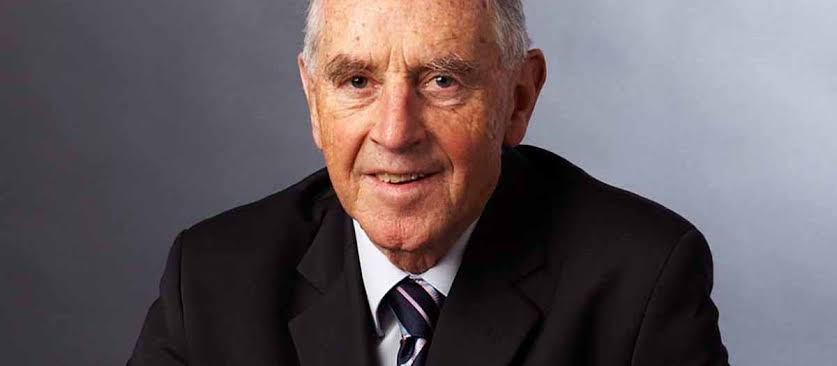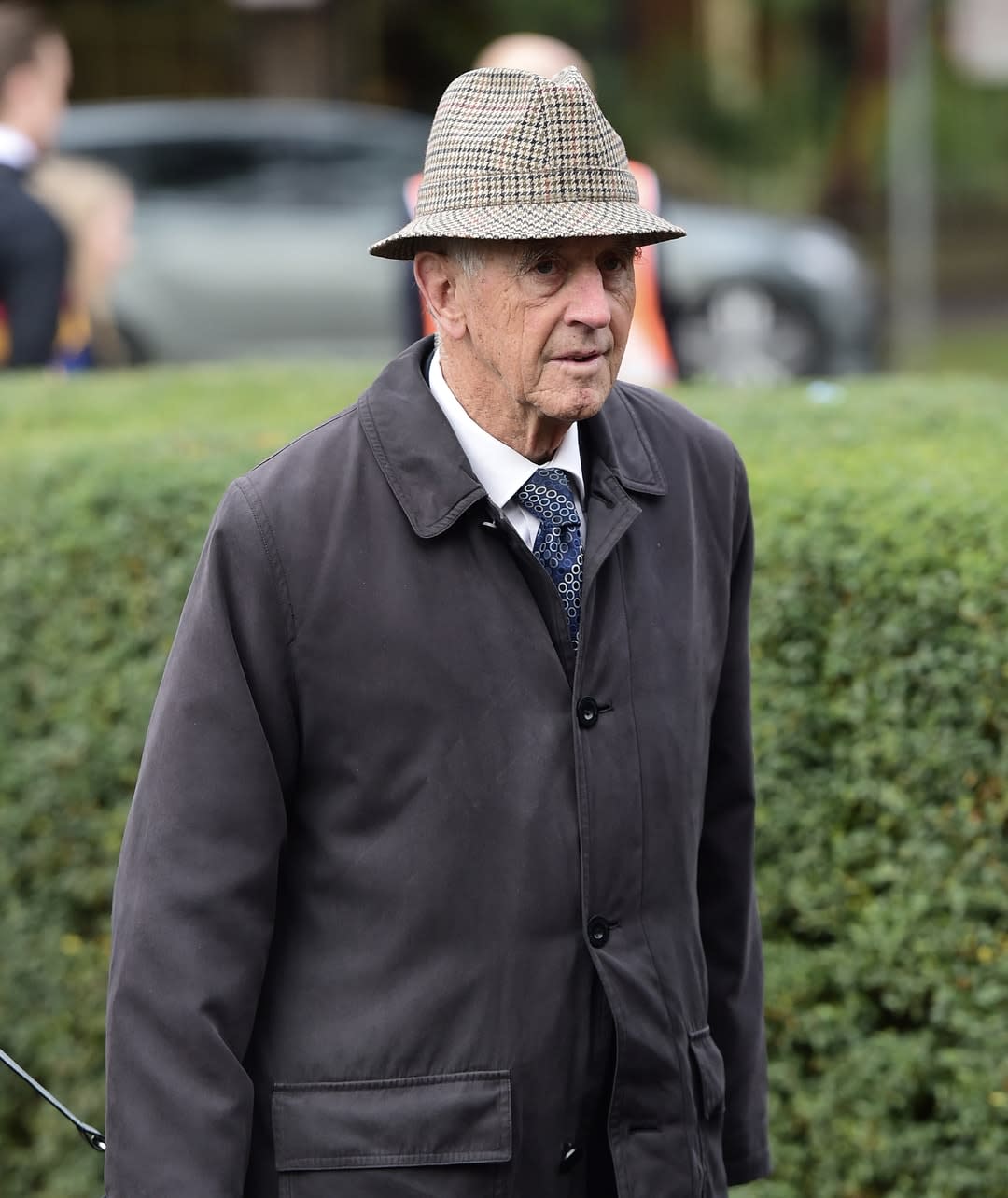
On Monday, a state memorial service will be held to celebrate the life of the former premier of Victoria, John Cain, who passed away shortly before Christmas. Few could be more deserving of that honour.
I will attend the service to remember John for his immense political legacy and as the outstanding person that he was.
I enjoyed the privilege of getting to know John over the past decade-and-a-half. I first came into direct contact with him when researching biographies of him and his father (another Labor premier) for a volume on Victorian premiers published in 2006.

As I've learned during my academic career, writing the life story of a living subject or a subject who has living relatives is a potentially fraught undertaking. John could easily then have made my task doubly difficult. Instead, he cooperated with the project, including granting me access to the diaries he maintained during his premiership. Inevitably, he disagreed with some of my interpretations of his father’s and his political careers, but that didn’t prevent him from treating me with impeccable courtesy and respecting my views. Subsequently, he agreed to launch my history of the first century of political Labor in Victoria, speaking generously and informatively at the event.
By that time we were in regular contact because John had become a staple guest speaker in the Victorian Parliamentary Internship program—a special unit for high-achieving politics undergraduates from Melbourne, Monash and Victoria universities— in which I taught. John lived by the standard of public service, and so year after year when a new intake of interns was inducted, he volunteered to share with them his knowledge of executive government in Victoria. Despite his advancing age, the students were always struck by his undiminished passion and the authenticity of his conviction.
Through these connections, John and I formed a friendship. We developed a habit of talking on the phone semi-regularly. We’d swap opinions about the condition of the nation’s politics (the prognosis was typically gloomy) and recommendations for the latest political biography that either of us were reading. We were both aficionados of American presidential life stories. At the conclusion of those conversations, John would thank me for my time and apologise for taking it up. I tried to reassure him that the privilege was entirely mine. But our next call would end the same way. That was John – humble and utterly unaffected.
What of Cain the politician?
He left at least two major legacies. First was transforming Victorian Labor. It's impossible to overstate the significance of the name Cain to Labor in this state. He and his father (three times premier in the 1940s and 1950s) were the giants of 20th-century Victorian Labor. Historically, Victoria was the Cinderella of Australia’s state Labor branches – it was the last to win office, and its share of government last century was less than half that of New South Wales, Queensland, Tasmanian and Western Australian branches. Following the split over the combustible forces of communism and Catholicism that destroyed his father’s final premiership in 1955, Labor in this state was confined to opposition for a generation. The party ossified into a doctrinaire outfit dominated by industrial militants who were wilfully uninterested in electoral success.
The reform record of his eight-year premiership was remarkable for its range and significance.
Cain was part of a small group of comrades (it included other extraordinary figures such as John Button) who were in the vanguard of a campaign to reform the party in the 1960s. They bravely challenged the ruling clique, and were instrumental in precipitating a far-reaching reorganisation of the Victorian branch in 1970-71. In turn, that paved the way for an infusion of new blood into the parliamentary party (Cain was part of that influx), and for a major renovation of Labor’s policy manifesto to make it electorally viable and prepare it for office.
When Cain became the state opposition leader in 1981, his mission was to end Labor’s woeful record of nine successive election defeats. On polling day April 1982, one sceptical voter told Cain, "You’re like Collingwood. If you don’t get it this time, you never will." The jinx was broken: Cain became premier as Labor swept into office with a primary vote of 50 per cent. Cain went on to win two further elections. In doing so, he became the first Labor leader in the state’s history to govern for consecutive terms, and the fourth-longest-serving premier of the 20th century.
More than that, his government at long last proved that Labor could manage the state productively. Since then, Labor has become Victoria’s natural party of government; it's been in office for nearly three-quarters of the past four decades. It's no exaggeration to say that the Labor premiers who have followed in the 21st century – Steve Bracks, John Brumby and Daniel Andrews – stand on Cain’s shoulders.
His government passed landmark equal opportunity legislation, and Cain took on Melbourne’s stuffiest establishment sporting clubs over their maintenance of exclusively male zones.
Cain’s second great legacy was his government’s modernisation of Victoria. The reform record of his eight-year premiership was remarkable for its range and significance.
As a highly activist attorney-general, Cain spearheaded legal and electoral reforms underpinned by the principles of transparency, accountability and independence from political interference. His government was pioneering in Australia in creating a director of public prosecutions and in enacting freedom of information laws. It rid Victoria of a malapportioned zonal voting system, and instead enshrined the principle of one vote, one value. An independent, non-partisan authority was set up to oversee the state’s electoral system – a model emulated federally when the Hawke Labor government created the Australian Electoral Commission.
Cain’s government established the Transport Accident Commission and WorkCare (the forerunner of WorkSafe). Both schemes were administered by a single public authority (overturning the old model of profit-driven private insurers), and ushered in an innovative emphasis on accident prevention. Another creative initiative of his premiership copied interstate and internationally was the Victorian Health Promotion Foundation (VicHealth). Founded by legislation that prohibited outdoor tobacco advertising, it used revenue from cigarette taxes to fund public health campaigns, and to buy out tobacco sponsorship of cultural and sporting events.
His government passed landmark equal opportunity legislation, and Cain took on Melbourne’s stuffiest establishment sporting clubs over their maintenance of exclusively male zones. He spurned invitations where his wife, Nancye, could not accompany him, and threatened action unless the clubs abolished these archaic practices. The Melbourne Cricket Club and Victorian Racing Club bowed to his pressure. His government decriminalised prostitution, liberalised licensing laws, tightened firearms controls, overhauled tenancy laws, and extended shop trading hours.

A pet project of Cain’s was the National Tennis Centre at Flinders Park (now Melbourne Park, above), which is the major physical landmark of his premiership. For many years he was a fixture at the Australian Open tennis in January, a marquee international sporting event in Melbourne that has thrived in no small part due to his vision.
Not a perfect record
Cain’s government had its share of mistakes. It was stricken in its final term by wrenching public-sector industrial disputes and internal factional conflict, and the state was beset by a series of financial calamities. The latter were due to a combination of the government’s imprudent policies, corporate venality and excess licensed by federal Labor’s deregulation of the financial sector, and neglect by regulators. It was a tragedy that a leader who was such a stickler for probity (he returned corporate gifts, declined to fly first-class, and paid for his own postage) saw his government’s reputation so sullied in its final years.
Despite the unhappy end to his premiership, there's no questioning that Cain changed Victoria overwhelmingly for the better. He did so with seriousness of purpose, clarity of principle and decency. I'll miss our calls.
The State Memorial Service for former Victorian Premier John Cain will be held on Monday 3 February at 11am at St Paul’s Cathedral, Melbourne. Members of the public are encouraged to attend, with doors to open at 10am. In lieu of floral tributes – and in keeping with John’s lifelong sense of public service – his family has requested that people consider making a donation to support the Victorian Bushfire Appeal.





